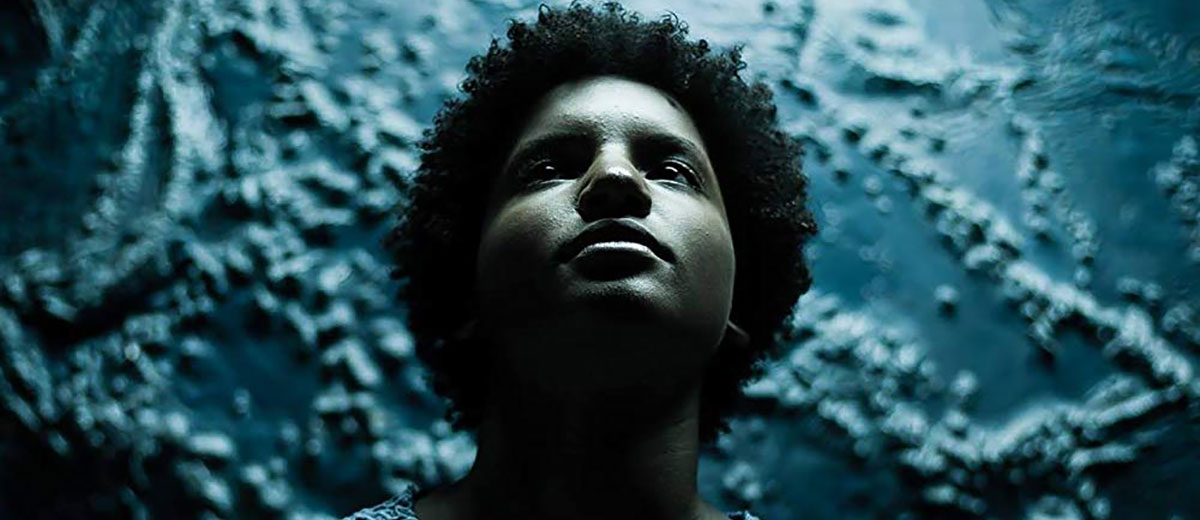KARLOVY VARY – As the title not so subtlety indicates, “Miriam Lies” and she lies often. The soon to be 15-year-old has her reasons, however. And while the film may take place in the Dominican Republic, this assured narrative diretorial debut of Natalia Cabral and Oriol Estrada ensures that Miriam’s situation is one that girls (and boys) from mixed race parentage all around the world will be able to relate to.
READ MORE: Robert Pattinson loves the ‘prizes and parties’ at the Karlovy Vary Film Festival
A world premiere at the 2018 Karlovy Vary International Film Festival this past week, “Miriam Lies” finds the shy teenager (Dulce Rodríguez) at the center of her mother Tere’s plans to stage an epic birthday party for her (similar to a Quinceanera). Tere (Pachy Méndez) isn’t well off, however, and has enlisted the help of Claudia (Margaux Da Silva), the mother of Miriam’s best friend Jennifer (Carolina Rohana) who is more than happy to stage a shindig at their opulent home to show off her own daughter. Miriam seems less than enthused about the party and is much more nervous about meeting Jean-Louis (Elian Suarez), a boy that she’s told friends she’s “dating” even though they have only messaged each other online.
With seemingly everyone’s knowledge, the two teens agree to meet in an aquarium and Miriam scours the room trying to figure out who he is. She thinks he might be one of two light-skinned hispanic boys but is mistaken. When she calls him on her phone to point point his location she discovers that Jean-Louis is black and instantly freezes, leaving before he finds her. That’s when Miriam’s web of lies really begins. Her mother assumes Jean-Louis is going to be part of the birthday party’s opening dance number (with a paid choreographer no less) and Miriam finds herself telling lie after lie after lie to cover up the fact she doesn’t know how to handle the situation. At first we’re not sure if it’s because Miriam simply wasn’t attracted to him, but Cabral and Estrada soon make it painfully clear there are societal forces at work.
Miriam’s friends assume Jean-Louis is a blonde and blue-eyed white European because he’s the son of a new high ranking official at the French consulate. Miriam also witnesses Claudia blatantly treating the dark skinned help as beneath her (at one point she insists a landscaper recruited to stand in for Jean-Louis return to his work). Complicating all of this is the fact Miriam is dark-skinned herself. Miriam’s mother is light skinned Hispanic, but her father is dark skinned Dominican. Because her mother is more “white” passing, Miriam lives in a somewhat privileged position where she is not treated differently. And yet, she constantly witnesses unequal treatment of people who look much more like her.
The conflicted feelings Miriam has about her appearance are only exacerbated by those around her. Early on we learn her grandmother and uncle view her father and his family in a negative light and it isn’t because her parents are no longer together, it’s primarily about his race. Her father, on the other hand, is more than aware of this fact and, sadly, has nothing to say when his daughter asks him about it. He’s also dating someone new who happens to be white Hispanic as well which only diminishes Miriam’s own self-confidence. Her mother insists she wants to take her to the salon to take care of her hair (ie, “straighten” her natural hair). Even her friends want to play with her different textured hair. Often it seems as though only her bestie Jennifer truly loves her for who she is, but is that enough?
As the film progresses it’s painfully obvious these lies can’t last forever. The question isn’t just when there truth about Jean-Louis will come to light, but how. And Cabral and Estrada know that if you are staging this story in the real world there is no true happy ending and fashion a resolution that feels almost too real. Except, of course, it’s so real you absolutely believe it.
The only true criticism of “Miriam” is a cinematic one. Cabral and Estrada shoot a majority of the film in close ups or framed two-shots obviously trying to mirror the increasing claustrophobic pressure Miriam is facing. It all becomes a bit too much, however, and the film often feels like to take a (literal) step back and breathe. It also forces Rodríguez’s performance to keep viewers focused and while she’s a wonderfully talented actress it may have been a bit too much to put solely on her shoulders.
The lasting impact of societal and internalized racism has obviously been captured in other films and media over the decades, but in this particular moment there is something decidedly bold about what Cabral and Estrada’s have conceived here. There is something about this girl’s story that will linger with you longer than you’d expect. Perhaps it’s as simple as the fact that what seems like a teenager’s silly lie turns out to be more of a stinging indictment of the world at large than it should be. [Grade: B+]





